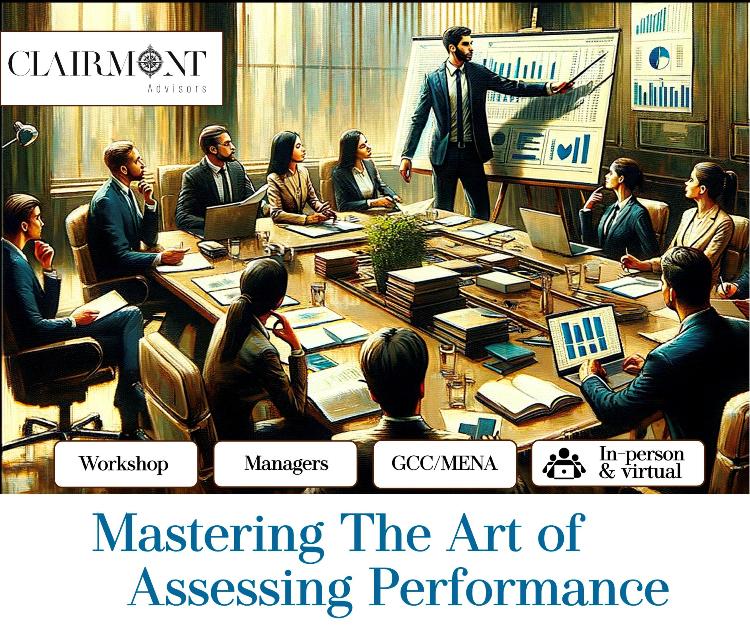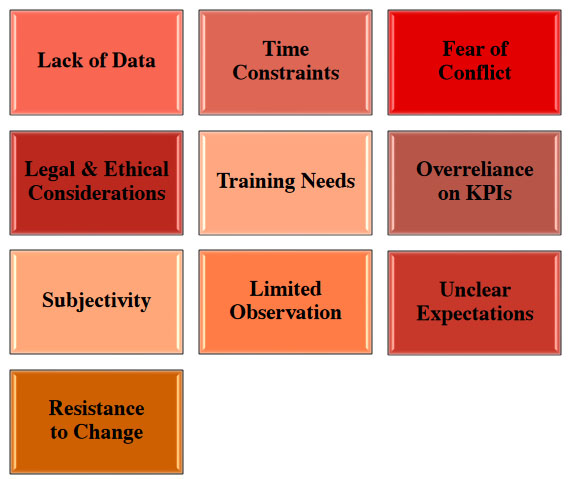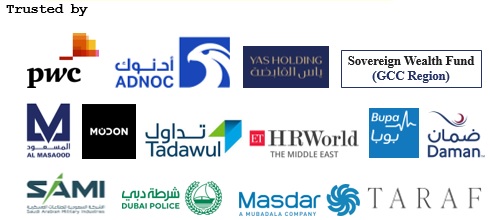Transforming performance assessments: beyond gut feelings and guesswork
We go to great lengths to understand the performance of our other assets, but largely leave assessing performance of our staff up to gut feelings and educated guesses!
Let’s consider the mid-year review process as an example. Typically, managers are tasked with reflecting on the performance of their direct reports during this time, providing guidance and support to help them achieve their agreed-upon goals.
Assessing direct report’s performance process often unfolds as follow:
Initial Communication: HR sends out an email to announce the start of the mid-year review process, urging managers to reflect on the performance of their direct reports. This email often does not prompt immediate action but may cause anxiety among employees who fear being judged.
Slow Start: As time progresses, the formal review process begins with an online portal opening for both managers and direct reports to input their performance evaluations. However, this can feel like just administrative paperwork and gets overshadowed by more urgent tasks.
Stagnation and Reminders: Completion rates for entering performance data remain low, leading HR to send out reminders and offer incentives to achieve a 100% completion rate.
Last-Minute Scramble: As the deadline approaches and only half of the reviews are done, HR sends another round of emails. These messages commend those who have completed their reviews and urge the rest to finish their assessments. This results in some last-minute entries by procrastinating managers.
Escalation Reflects Systemic Failure: Eventually, HR has to escalate the matter to higher-ups, pointing out the dismal completion rates and threatening repercussions for non-compliance. This approach, reminiscent of fear tactics from school days, reveals a system more focused on compliance than genuine performance improvement, often leaving the actual potential for growth and development unaddressed.
The overlooked challenges in Managerial Performance Assessment
What often gets overlooked in this process is the manager’s capacity to accurately assess performance. The focus shifts towards completing an HR task rather than genuinely evaluating and supporting employee progress. Consequently, managers are incentivized to complete the task promptly, sometimes with little consideration for the effectiveness or accuracy of the evaluation itself. This can lead to rushed assessments that fail to provide meaningful insights or support for employee development.
When rushed, individuals often revert to old habits or resort to shortcuts just to fulfill requirements. However, this approach contradicts the primary goal of supporting employee development and their contribution to organizational objectives.
At the heart of this activity lies the manager’s proficiency in assessing performance
The assessing performance workshop is designed to address precisely that. The aim is to equip managers with the skills and understanding needed to accurately assess performance, ensuring that evaluations are meaningful and conducive to employee growth and organizational success.
If the assessment input that going into the performance appraisal is garbage, then we can only expect the outcome to be garbage.

A 2023 performance management benchmarking study
81% HR feels that Performance Management is not Effective.
90% managers are dissatisfied with their performance management system.
A 2023 performance management benchmarking study by Gartner highlighted that a significant 81% of HR managers reported making changes to their traditional performance management systems. This change is driven by the recognition that current performance management practices may not effectively meet primary goals, with an even larger percentage (82%) indicating that performance management is not effective in its current form.

If that is HR’s view, what does the management think about performance management?
CEB reports that 90% of managers are dissatisfied with their performance management system. Research has shown when managers are cynical about the system, they are unlikely to respond to the system as intended .
It is no wonder why performance management continues to be one of the most discussed topics in HR and across the organizations. Instinctively, we know that we should understand how our employees are performing but there are debates on what is the best way to do that. While the different processes may be up to debate the critical element is to ensure that managers are trained to accurately assess the performance of their staff.
Navigating the complexities of Performance Evaluation
Assessing performance may seem straightforward at first glance, but it’s surprisingly complex!
Many individuals, not just managers, often express confidence in their ability to accurately evaluate behavior. Yet, numerous examples highlight the inherent difficulty in doing so. In boxing, for instance, the adage “Don’t leave it to the judges” underscores the reality that even trained assessors can err in their evaluations.
Navigating the complexities of Performance Evaluation
Assessing performance may seem straightforward at first glance, but it’s surprisingly complex!
Many individuals, not just managers, often express confidence in their ability to accurately evaluate behavior. Yet, numerous examples highlight the inherent difficulty in doing so. In boxing, for instance, the adage “Don’t leave it to the judges” underscores the reality that even trained assessors can err in their evaluations.
The risks of Inaccurate Performance Reviews
When managers fail to accurately assess their direct reports’ performance, it can lead to a range of negative outcomes.
Misguided Feedback: Employees may receive inaccurate or incomplete feedback on their performance, leading to confusion about areas of strength and areas needing improvement. This can hinder professional growth and development.
Demotivation: If employees believe their efforts are not accurately recognized or rewarded, they may become demotivated and disengaged from their work. This can lead to decreased productivity and morale within the team.
Unfair Treatment: Inaccurate performance assessments can result in unfair treatment, such as unequal distribution of rewards or opportunities for advancement. This can breed resentment and erode trust between managers and their team members.

Misalignment of Resources: If performance assessments are flawed, resource allocation decisions such as promotions, bonuses, or training opportunities may be misaligned with actual performance. This can lead to inefficiencies and missed opportunities for talent development and retention.
Loss of Talent: Employees who feel undervalued or unfairly assessed may seek opportunities elsewhere, resulting in talent attrition and increased recruitment and training costs for the organization.
Why managers struggle with Performance Evaluations?
Managers often struggle with performance evaluations due to a variety of factors. Competing priorities frequently overshadow the importance of thorough assessments, leading some to perceive these evaluations as having little value. Consequently, managers might treat these assessments more like routine administrative tasks rather than integral parts of staff development. This approach can create a disconnect from meaningful employee growth and the potential benefits of constructive feedback. Additionally, a desire to avoid conflict and a reliance on cognitive biases can further complicate the accuracy and effectiveness of performance evaluations, making it challenging for managers to engage genuinely in the process.
Advantages of Accurate Managerial Performance Assessments
A win-win-win for
organizations,
managers &
employees.

What will managers learn from this program?
Establish Clear Criteria: Define specific criteria and expectations for performance, ensuring alignment with organizational goals and job responsibilities. Clearly communicate these criteria to employees to provide a framework for evaluation. Managers should coordinate and calibrate the criteria they plan to use with other managers to make sure there are not implicit biases in the
Creating Performance Rubric: Develop a performance rubric that outlines performance standards and assigns values to demonstrated behaviors. This helps ensure consistency and objectivity in evaluating performance across different employees and situations.
Understanding of Development Opportunities: Be knowledgeable about available resources and development opportunities for direct reports. Provide support and guidance to help employees access these resources and further their professional growth.
Know that Assessment is Ongoing: Recognize that performance assessment is a continuous process, not a one-time event. Regularly engage with employees to provide feedback, discuss progress, and identify areas for improvement throughout the year.
Monitor for Biases: Be aware of potential biases and unconscious prejudices that may influence your evaluations. Challenge yourself to remain objective and impartial by examining your own thought processes and decision-making tendencies.
Understand Context and Environment: Consider the broader context and environment in which employees are operating. Take into account external factors such as workload, organizational changes, and personal circumstances that may impact performance.
Seek Multiple Perspectives: Gather input from multiple sources when assessing performance, including peers, colleagues, and stakeholders. This provides a more holistic view of an employee’s performance and helps mitigate individual biases.
Who can benefit the most from this program?
This program is designed for anyone with the responsibility to assess the performance of employees. This includes managers and members of the HR Department.
The program is designed for anyone with the responsibility to assess the performance of employees, making it ideal for managers and HR professionals in cosmopolitan business hubs such as Riyadh, Jeddah, Dubai, Abu Dhabi and Doha.
Workshop Delivery Across The GCC Region
Virtual |
 |
|
Option 2 Virtual: Option 3 Virtual: |
In-person |
 |
|
Option 1 In-Person |
To receive this workshop pricing, outline and logistics fill up below form,
or send us an email to shad@clairmontdevelopment.com
or send us an email to shad@clairmontdevelopment.com
 Abu Dhabi Investment Authority (ADIA), UAE
Abu Dhabi Investment Authority (ADIA), UAE
Head of Learning and National Development
– Lead organizational learning initiatives across the firm
– In charge of local talent development from graduate development through senior leadership programs
 Pacific Investment Management Co (PIMCO), USA
Pacific Investment Management Co (PIMCO), USA
Vice President – Learning & Development
– Lead global learning initiatives for staff of 2,600
– Focus on Portfolio Management, Product Management, Client Management, and Business Support
Associate – Business Development
 UBS, USA
UBS, USA
Advisor
– Focus on Municipals Bonds, Deep Value Equities, and Absolute Return Strategies
 University of Pennsylvania, USA
University of Pennsylvania, USA
Ranked #3 School of Education in the world, 2024
- Doctorate of Education (ABD)
- Masters of Education
Pepperdine University, USA
- MBA
Vanguard University, USA
- Bachelors – Business
Frequently Asked Questions (FAQ)
To receive this workshop pricing, outline and logistics fill up below form,
or send us an email to shad@clairmontdevelopment.com
or send us an email to shad@clairmontdevelopment.com











Leave A Comment